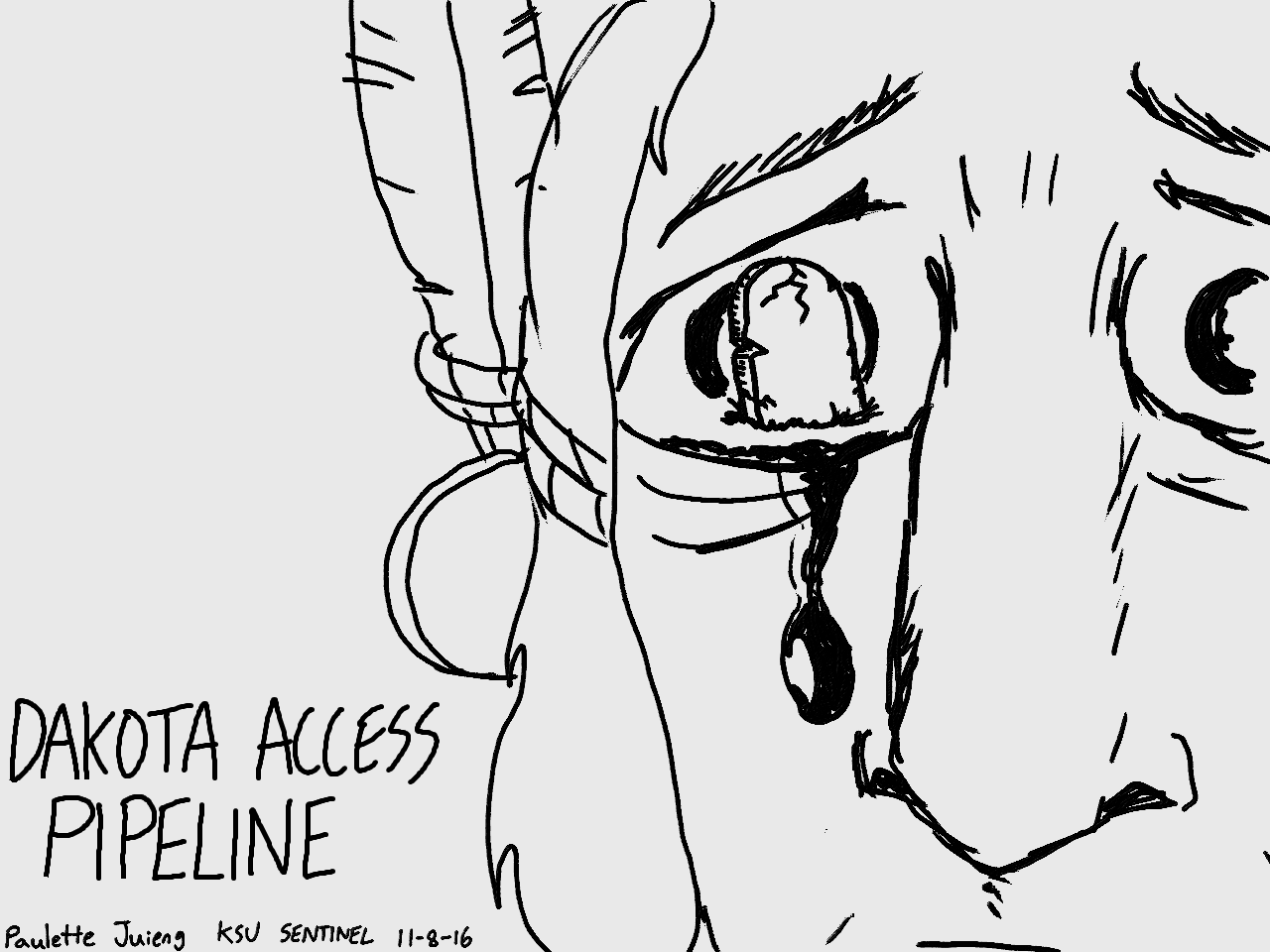As the people of the Standing Rock Sioux Nation and non-natives unite to protest, construction of the Dakota Access Pipeline continues to purge through sacred tribal land and water source.
The Dakota Access Pipeline will carry domestic crude oil through North Dakota, South Dakota and Iowa to a refinery in Pakota, Illinois. According to the website of the DAPL, the pipeline “will translate into millions in state and local revenues during the construction phase and an estimated $156 million in sales and income taxes.”
That pipeline will create “8,000 –12,000 construction jobs and up to 40 permanent operating jobs,” according to the Energy Transfer Partners website.
Those statistics all sound amazing, but at what cost? According to the complaint filed by the Sioux tribe, the route of the DAPL will not only pass directly through Native American burial sites and sacred land, but also through waterways like the Missouri River, their main source of water.
Of course, damaging the environment, sacred land and water sources does not phase Energy Transfer Partners.
The company has ignored the cries of the Sioux Nation and other opponents of the DAPL. The pipeline will cross the Missouri River and travel underneath a lake located just upstream the reservation. If the pipeline were to leak, it could contaminate and destroy the tribe’s drinkable water.
In terms of sacred land, building through the land is equivalent to destroying headstones and extracting oil from a graveyard. Doing so completely disrupts the dead and is beyond disrespectful to the native culture.
What would happen if a corporation destroyed your church’s cemetery for oil? Or, for that matter, if they bulldozed your church or temple?
Some students here at Kennesaw State feel passionately about the pipeline.
“Sacred land is part of the history of this country,” said mechanical engineering major Courtney Long. “It is a part of a group of people’s background, and by having the government use their power to tear it up against the Sioux wishes is just an abuse of power.”
Long has been following the protests since the construction began in April and hopes to attend a protest soon.
Even thought the pipeline is several states away, KSU students can still help. A protest is being held Tuesday morning at 11:30 a.m. in front of the CNN Center in Atlanta. The peaceful demonstration is meant to honor the sacred land and raise awareness about the pipeline.
Attendees will help construct an altar to honor the Standing Rock nation and are encouraged to bring offerings. Once the altar is built, protesters will march through Atlanta. The Standing Rock nation encourages anyone to attend.
If you are unable to attend the demonstration, I encourage you as a student to take to social media, campus and your town hall to bring attention to the peoples of Standing Rock.
As Dr. Seuss’ Lorax taught us as children: “Unless someone like you cares a whole awful lot, nothing is going to change. It’s not.”



Can you let me know what Tuesday are you referring to in the article just so I can get the date right?